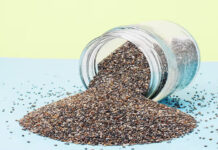Diabetes is a battle. It affects the daily lives of the people who are diagnosed with it. A lot of diligence and care should be done to live normally. With greater awareness and better control of risk factors, people who have been diagnosed with diabetes can live a long and happy life. The good thing is that we have breakthroughs in science and technology that help out people who are suffering from this disease.
There’s been a decline in several major complications connected to diabetes, and this is all due to the awareness drive about how to handle the disease. People are now better equipped with information today than a couple of decades ago. Several medications have also been made to prevent and even stop some of the complications that arise due to diabetes. The test for diabetes is more accessible and affordable now than the past few decades. That’s good news. But during the same couple of decades, the number of people who’ve been diagnosed with diabetes has already tripled. If you have recently been diagnosed with diabetes or is taking care of someone who has the disease, it’s very crucial that you know the things to do and the things to avoid when someone has diabetes.
Proper diabetes care should start with diagnosis and monitoring. A health diary can help a diabetic patient maintain a record of improvement and changes noticed in one’s health. You can create a daily or weekly “My Medical score” record of what happened with your health for your doctor’s reference in scheduled check-ups.
With the right information and proper care, the impact of diabetes can be lessened. Here are a few pointers on how to properly care for you or for anyone who has diabetes.
1. Choose what you eat and choose carefully.
Let’s face it you can’t eat as you did before. Choosing the right diet plan can work wonders on avoiding complications. Having diabetes doesn’t mean that you have to avoid carbs and sweets completely, your body still needs carbs and sugar to function properly. Eating healthy portions of food and proper diet planning can play a significant role in maintaining the right sugar levels in your body. Talk to a dietitian about what food you can eat and the diet you should follow.
2. Exercise regularly.
Regular exercise can help your body manage your blood sugar levels. Moving more and eating less can lead to long-term benefits to adults who have type 2 diabetes. Regular physical activity can help lower the risk of cardiovascular diseases and lessen the risk of further complications in diabetes. Moderate to vigorous physical activity is highly recommended to persons who have Type 2 Diabetes.
3. Lose Weight.
Losing weight can help you improve your body’s ability to use insulin. Shedding a few pounds can help in lowering blood sugar levels and adjust your blood pressure. Another plus to losing weight is that you will have more energy to do physical activity. Cut down the carbs and sugar from your diet and see the benefits.
4. Getting enough sleep.
To much or too little sleep increases your appetite and cravings for sweet and high carbohydrate foods which may, in turn, lead to weight gain, and increases the risk of complications. People who are tired are likely to eat more to get energy. Enough sleep means aiming for at least seven to eight hours of sleep every night. The more fatigued a person feels, the more effort the body puts up to make itself function well, and that can lead to serious insulin deficiencies.
5. Stay away from stress.
Stress, either mental or physical can directly affect your blood glucose levels. Reduce or avoid mental stress by making changes in your daily life of getting rid of the things that give you anxiety. There are many ways to de-stress at home, from simple things like Yoga to cleaning the clutter in the house that adds to your stress. You can also start a new hobby, go outdoors or even join some lessons to escape stress.
6. Monitor your blood sugar levels regularly.
This is a lifetime commitment. Regular testing is a good idea to avoid the complication of diabetes, you must monitor and control your blood sugar levels diligently to minimize the risk of hyperglycemia or increased blood sugar levels. This will help you prevent further complications like kidney problems and heart problems. It’s crucial that you obtain an excellent Blood Glucose Monitoring System. Checking regularly will also show you how you’re affected by the food you eat and the activities you do.
7. Lower your sodium intake.
People with diabetes are recommended to cut back on their sodium intake as they’re more likely to have high blood pressure. Reducing your daily sodium intake can significantly lower your risk of high blood pressure and heart disease. Preparing meals at home and limiting the amount of processed food you consume in a week will drastically decrease your sodium intake by a large percentage.
8. Check your ABCs.
No, it’s not about the alphabet. The ABC acronym for diabetic patients stands forA1C Level – It’s a test that measures the average blood sugar within the past three months. It measures what percentage of your hemoglobin is coated by sugar. Blood Pressure – Normal blood pressure should be within the ranges of 120/80 to 140/90 mm Hg.
9. Cholesterol level –
The desirable level of HDL for adults without heart disease, should well be within 200 mg/dl. Any HDL level lower than 60mg/dl is considered a risk factor for heart disease.
10. Avoid physical injuries.
As a diabetic patient, you’re advised to maintain regular physical activity. A simple scratch from falling could be very dangerous to you. Treat your wounds or scratches carefully. You have an increased risk of infection, and your healing process is prolonged if you’re a diabetic patient. Clean up your wounds with a sterile bandage and cotton swabs. If the wound isn’t better in a few days, check with your doctor. People who have diabetes should be cautious in doing physical activity to avoid any untoward injuries.
11. Quit those bad habits.
Quitting smoking can lower your blood pressure and risk of stroke, heart attack, nerve damage, and kidney disease. Ask your doctor for help in stopping that bad habit. Alcohol intake should also be controlled as alcoholic drinks, even taken in moderation may cause blood sugar to rise. Excessive amounts of alcohol intake too can be dangerous as it causes your blood sugar to drop into very low levels.
12. Schedule your check-up
People with diabetes will always be followed by a doctor for the rest of their lives. It’s highly recommended to create a scheduled visit to your doctor a minimum of once a year. Set annual physical check-ups for blood pressure levels, foot exam, and screenings for internal complications. Prevention of complications always starts with a doctor’s checkup.
13. In-charge but never alone.
No matter what challenges we face, it’s always good to have support. Find an excellent companion to be within your daily grind against diabetes. If you live alone, you can get a pet. Being surrounded by pets is naturally therapeutic. Find a support group in your community.
Overall
It’s essential to follow your doctor’s advice on how to manage diabetes. With a good diet and proper exercise, the effect of diabetes can be lowered to a minimum. Everybody wants to live a normal life; it’s possible with the right information and care for one’s self and healthcare. Life doesn’t stop at your diagnosis. It starts when you care for yourself.














